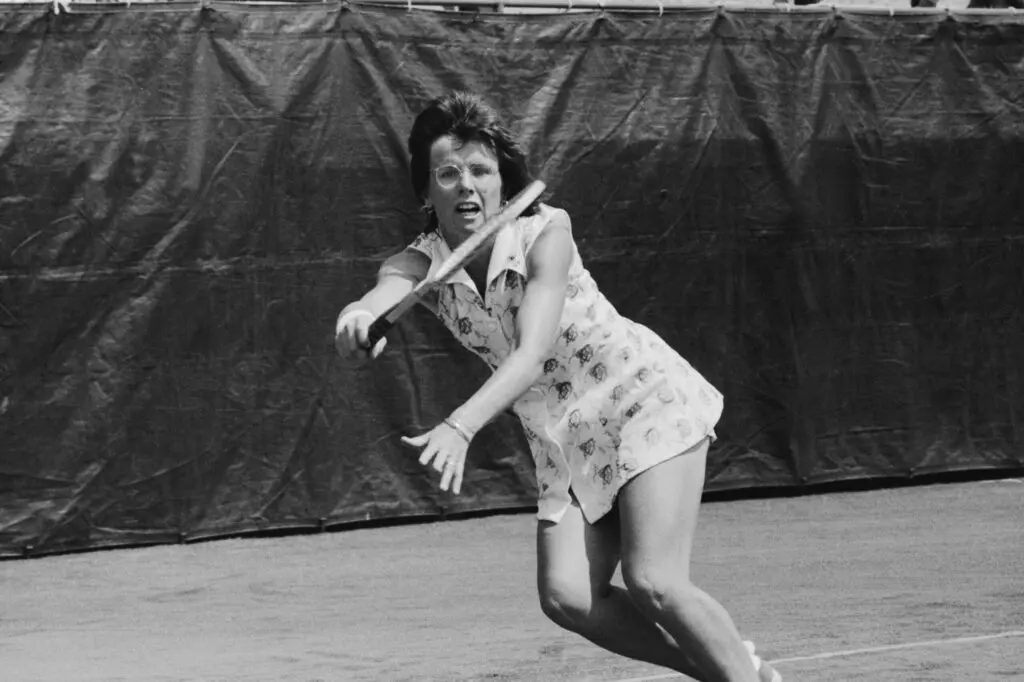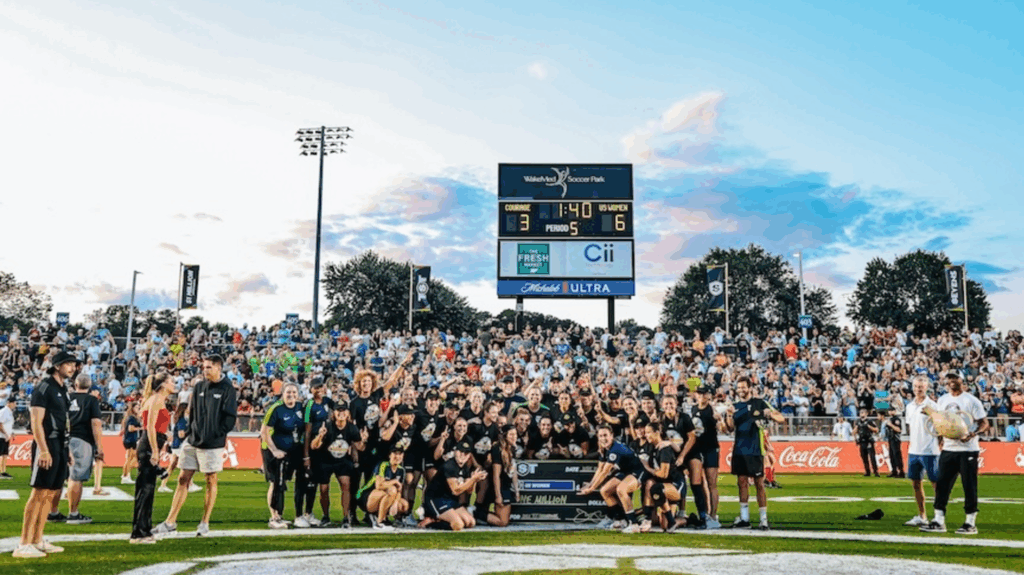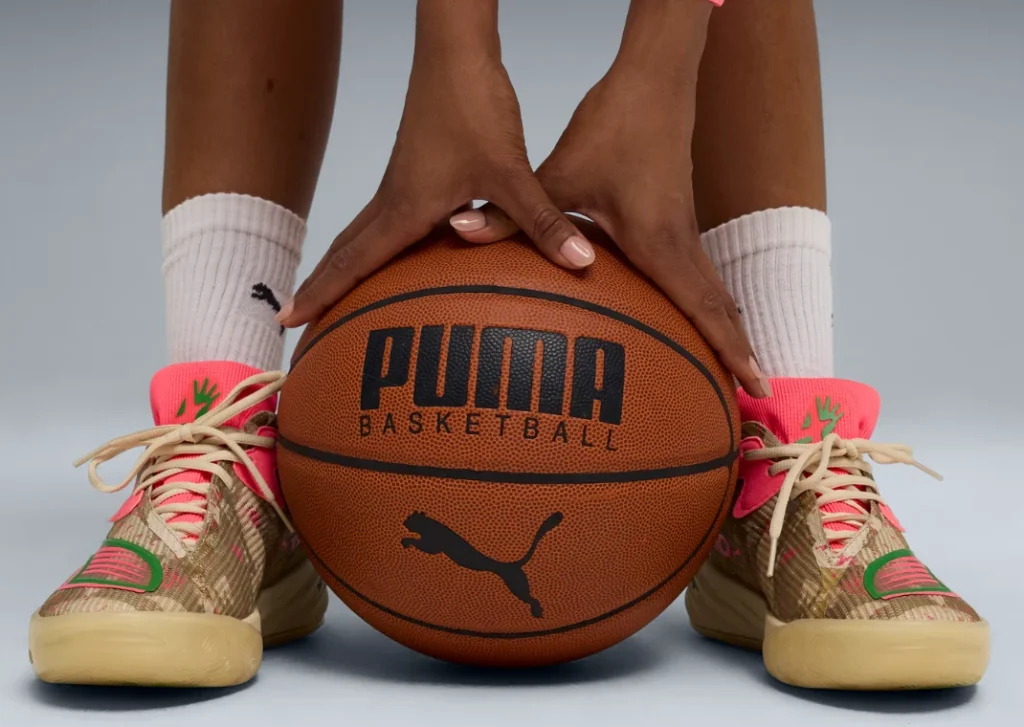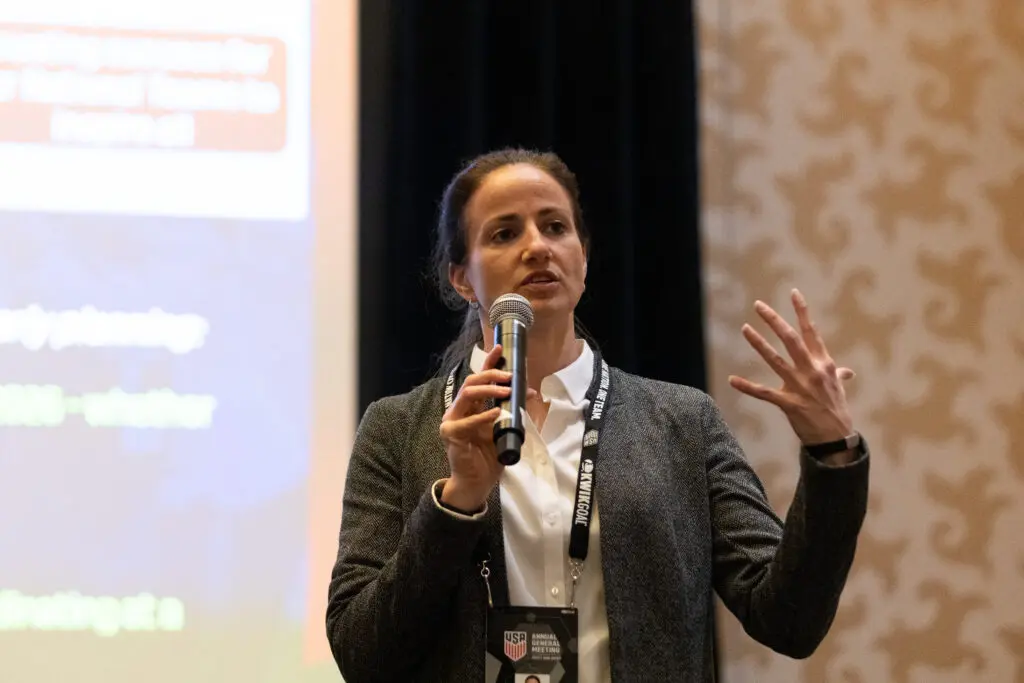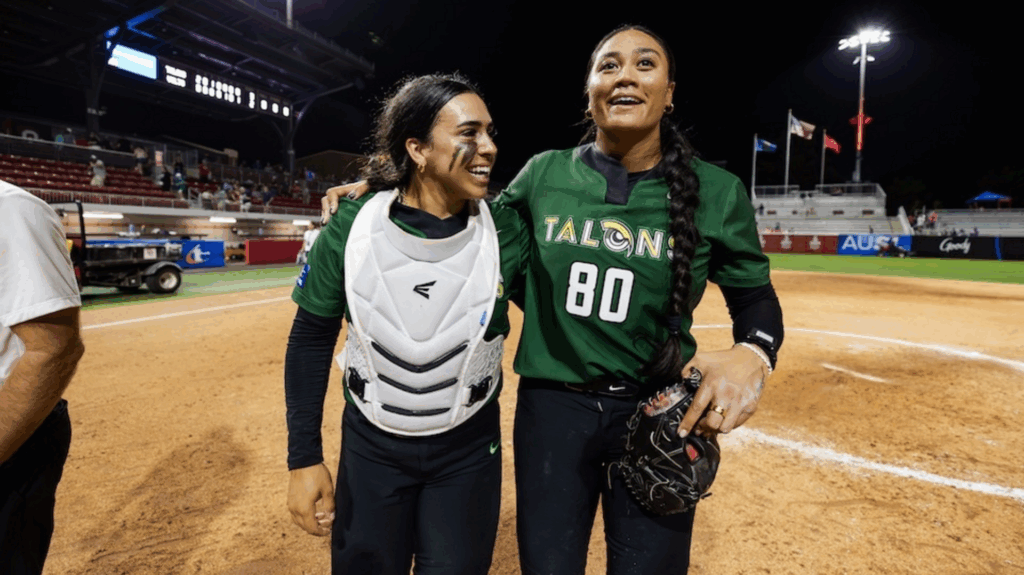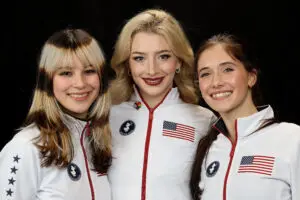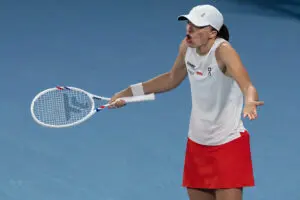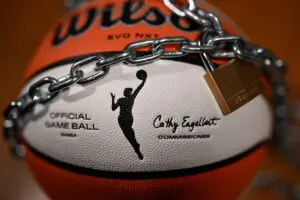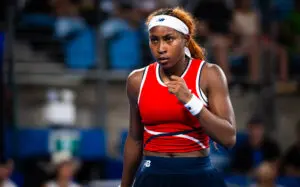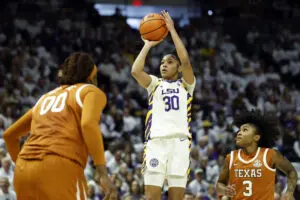The US Open will celebrate 50 years of equal prize money this summer. The theme art for this year’s tournament commemorates the accomplishment.
As the first Grand Slam to implement equal pay in the Open era, the US Open did so in 1973. The change was sparked by tennis great Billie Jean King, who continues to fight for equal pay across women’s sports. It took decades for the other Slams to follow suit, with the Australian Open implementing equal prize money in 2001 and the French Open and Wimbledon waiting until 2006 and 2007, respectively.
“The USTA is incredibly proud to celebrate the 50th anniversary of awarding equal prize money at this year’s US Open, and to honor Billie Jean King’s efforts to make this a reality,” USTA president Brian Hainline said in a statement. “No individual has done more to secure equality for female athletes than Billie Jean King. Her impact goes far beyond the tennis court, and there is no better time to celebrate her legacy than on the anniversary of this historic milestone.”
✨ Iconic ✨
— US Open Tennis (@usopen) March 14, 2023
2023 theme art honors @BillieJeanKing & the 50th anniversary of equal prize money at the US Open. pic.twitter.com/dqCt2z5Pba
“It was a lot of hard work,” King told USA Today. She says she remembers being “exhausted all the time” during what was a pivotal year for tennis and “women in general.”
“In 1972, I won and got $10,000, while the men’s champion, Ilie Nastase, won and got $25,000,” she continued. “This was ridiculous so I said, ‘I don’t think the women are going to be back next year, we’re not going to be back in 1973 unless we get equal prize money.’ I’m saying this but just hoping and trusting the other players would go along with it at that point.”
Yet King knew that they wouldn’t accomplish anything through complaints alone. Instead, she helped to come up with solutions.
“I knew I had to not just complain, but to come up with solutions,” she said. “So I talked to different sponsors and asked them if they’d make up the difference in total prize money. I was a business woman and this was a business decision, so I knew if I got some sponsors to pay more money, I was hoping that would make the difference, and it did.”
